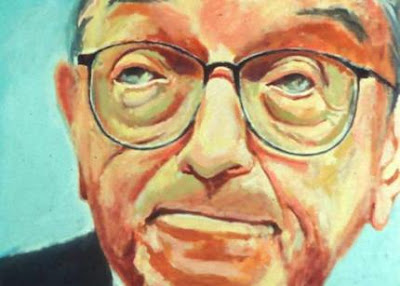
Are we there yet?
That question about a U.S. recession is on the mind of anyone who gets to hear former Federal Reserve Chairman Alan Greenspan speak, and it was no different for the hundreds who packed a Galleria dining room Thursday night at Cambridge Energy Research Associates' annual conference.
The answer? Not quite.
"I think we're clearly on the edge," Greenspan said. "Fifty percent or better."
It's the same answer he's given in the closely followed talks he's given in recent months, which may be seen as good news for those tracking the fallout from the subprime mortgage crisis and the corporate credit crunch that's followed.
But he described the U.S. economy as being "at stall speed," and noted that the real impact of tight credit markets isn't being felt because most companies are strong and haven't had to run to borrow.
"If not for the fact that businesses were in extraordinarily good shape before it hit, we would not be discussing this question of if we're in a recession, but how long and how deep," Greenspan said.
The economy won't be out of danger until home prices stop falling. And that won't happen, he said, until home builders cut inventories of unsold homes.
"The sooner we cut the rate of new home construction below that of home buying and liquidate the inventory, the better for everyone," he said.
That question about a U.S. recession is on the mind of anyone who gets to hear former Federal Reserve Chairman Alan Greenspan speak, and it was no different for the hundreds who packed a Galleria dining room Thursday night at Cambridge Energy Research Associates' annual conference.
The answer? Not quite.
"I think we're clearly on the edge," Greenspan said. "Fifty percent or better."
It's the same answer he's given in the closely followed talks he's given in recent months, which may be seen as good news for those tracking the fallout from the subprime mortgage crisis and the corporate credit crunch that's followed.
But he described the U.S. economy as being "at stall speed," and noted that the real impact of tight credit markets isn't being felt because most companies are strong and haven't had to run to borrow.
"If not for the fact that businesses were in extraordinarily good shape before it hit, we would not be discussing this question of if we're in a recession, but how long and how deep," Greenspan said.
The economy won't be out of danger until home prices stop falling. And that won't happen, he said, until home builders cut inventories of unsold homes.
"The sooner we cut the rate of new home construction below that of home buying and liquidate the inventory, the better for everyone," he said.
Greenspan spent 18 years as the chairman of the U.S.'s central bank, retiring in 2006. Despite his absence, the media and business community continue to dissect his every word.
His appearance Thursday night likely helped attendance on the fourth day of CERA's annual conference. More than a dozen reporters from the wire services stayed for the 55-minute conversation between CERA Chairman Daniel Yergin and Greenspan.
Greenspan said Richard Nixon and Bill Clinton were the most intellectually adept. Yergin pointed out he called Clinton "the best Republican president," in his book.
"He didn't appreciate it," Greenspan said.
"He may not be the only one," Yergin quipped back.
Gerald Ford was the president he liked the most because he was "psychologically the closest to normal of anyone I know."
Ronald Reagan had a "sunniness of disposition" that was genuine, Greenspan said, while Sen. John McCain is the Republican candidate having the most in common with Reagan, largely because of his roots as a Goldwater Republican. "McCain is a conservative," he said.
His appearance Thursday night likely helped attendance on the fourth day of CERA's annual conference. More than a dozen reporters from the wire services stayed for the 55-minute conversation between CERA Chairman Daniel Yergin and Greenspan.
Greenspan said Richard Nixon and Bill Clinton were the most intellectually adept. Yergin pointed out he called Clinton "the best Republican president," in his book.
"He didn't appreciate it," Greenspan said.
"He may not be the only one," Yergin quipped back.
Gerald Ford was the president he liked the most because he was "psychologically the closest to normal of anyone I know."
Ronald Reagan had a "sunniness of disposition" that was genuine, Greenspan said, while Sen. John McCain is the Republican candidate having the most in common with Reagan, largely because of his roots as a Goldwater Republican. "McCain is a conservative," he said.
By TOM FOWLER
Read more | Digg story
No comments:
Post a Comment